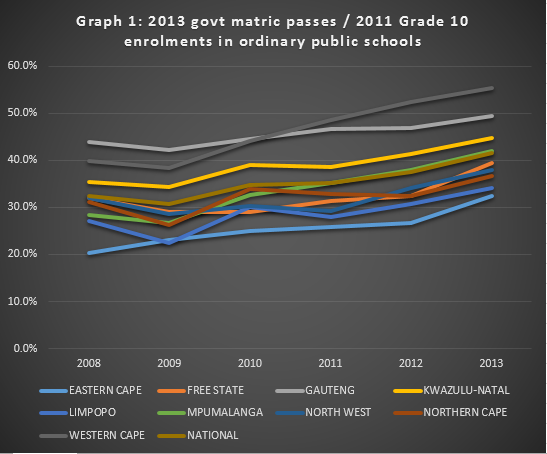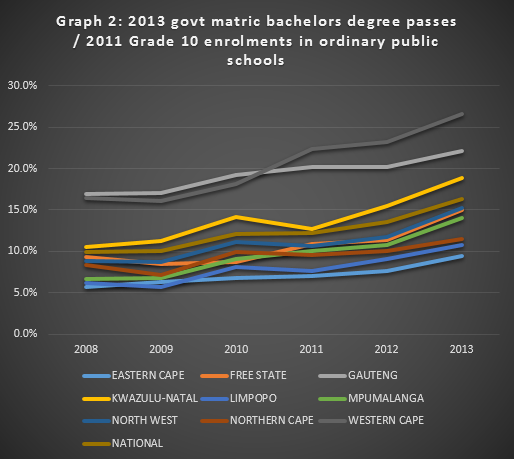January 24 2014 at 01:30pm
By ZAINUL DAWOOD and SIYABULELA DZANIBE
Dramatic cellphone footage of the incident outside Hillview High School, which has gone viral, is being analysed by police.
Durban -
A school pupil has died and another is fighting for his life in hospital after two separate incidents of stabbing in KwaZulu-Natal, just days into the new academic year.
In Umzinto on the South Coast Thobani Philani Shezi, 21, was stabbed by robbers outside Roseville Secondary School, where he was in Grade 12, on Wednesday.
Police said he was killed for his cellphone.
And in Newlands East, a faction or gang fight is believed to have been the cause of a 16-year-old pupil being stabbed outside the Hillview High School gates on Tuesday, allegedly by a 21-year-old man who lives in the same neighbourhood as the teen.
The boy, who was apparently also armed with a knife, was stabbed in the chest as a large group of pupils watched.
He sustained critical injuries – his liver, lungs and spleen have been punctured – and is in ICU.
Dramatic cellphone footage of the incident, which has gone viral on the internet, is being analysed by police.
A man was arrested after the stabbing and was to have appeared in the Newlands West Magistratre’s Court on Thursday to face charges of attempted murder.
The school’s management on Thursday ordered some of its pupils to stay home for their own safety, telling parents in a note that the “ongoing feud” involving residents from different sections of the neighbourhood had spilt over into the school, endangering the lives of teachers and pupils.
A source said the teen and the man lived in nearby roads.
In December, boys from one road walked along the other road where there was an exchange of words that is believed to have led to Tuesday afternoon’s fight.
The Daily News has viewed the 34-second cellphone footage, which shows schoolchildren forming a circle around the two fighters.
The video, presumably recorded by a pupil, starts with a man dressed in shorts and a blue T-shirt and a teen in school uniform, both with knives in their hands, taunting each other.
After the pair size each other up, the man lifts up his hand and swipes his knife at the boy who blocks the strike with his hand.
The man runs forward and takes another swipe at the teen, who pulls back unharmed.
The man then kicks off his flip-flops and swipes at the teen twice. As the teen is back pedalling, he tries to fend off more strikes with his schoolbag but then he runs out of space as he backs into a mini-bus taxi and the circle of schoolchildren.
He swipes back twice with his knife and kicks out at the man, losing a shoe in the process.
The man swipes at him two more times and the boy is seen stopping and clutching his stomach before running away. The man follows, but eventually gives up the chase.
The pupil’s family have refused to comment.
Police spokesman, Captain Thulani Zwane, said the motive for the stabbing was unknown.
On Thursday some Hillview pupils were handed notes to give to their parents and have been advised to stay at home until Monday, when they must return with their parents to school for a meeting.
“The school is appealing to parents to work together with school management in finding a solution to the problem,” the note reads.
The KwaZulu-Natal Department of Education condemned the incident and called on the Newlands East community to help resolve the problem of gangs in the area.
“It is always faction fights spilling over at (the) school premises… This is a community problem but the department is willing to intervene,” said spokesman Bhekisisa Mncube.
He said members of the SAPS dog unit had conducted a raid at the school on Wednesday to search for weapons.
“All learners who are involved have been identified and have been suspended pending an engagement with parents and the community,” Mncube said.
“If there are any further issues, the matter will escalate to the department for the MEC to intervene.”
Mncube said police could not hold the suspect indefinitely, but they needed to interview the teen. However, the boy was in the ICU and could not be interviewed, he said.
“We are crossing our fingers for the life of the boy.”
Mncube said the pupil sustained very critical injuries. “He was taken into emergency surgery as soon he got to the hospital. We are very worried about his condition.”
Mncube said police were hoping that publicity around the cellphone footage of the stabbing would lead to more evidence being obtained.
“That piece of that viral video is very critical for the police at this stage,” he said.
“If this guy dies, the case will change from attempted murder to murder.”
Newlands East residents said on Facebook that the police should patrol both inside and outside local schools.
Dez Rey posted that he was surprised that none of the pupils in the crowd tried to stop the fight.
The local DA PR councillor, Shontel Wagner Asbury, said it was sad that at a time when children had more choices and rights than before, they chose to act violently and irresponsibly.
“It is tragic that kids are still walking around with weapons, and worse, they are using them to inflict crimes against one another,” she said.
“The community of Newlands needs to start taking charge and standing together against violent crimes.”
Zwane asked that anyone who witnessed the incident should contact Newlands East detectives at (031) 574 7135.
Zwane said that in the Umzinto stabbing, Shezi was with a group of pupils outside the school fence when they were approached by two men who robbed the victim of his cellphone and stabbed him once in the chest.
The other pupils carried him to the principal’s office and the police and paramedics were called, he said.
“The learner was pronounced dead a short while later. He had sustained an stab wound to the chest.”
Zwane said there were no arrests yet.
Mncube, when told of that incident, said MEC Peggy Nkonyeni would look into it.
“We are shocked and very saddened by the death of a pupil so early in the year,” said Mncube.
zainul.dawood@inl.co.za
siyabulela.dzanibe@inl.co.za
Daily News













